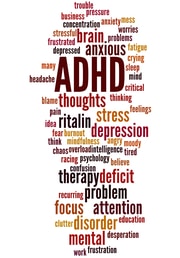Tips For Parents Who Are Experiencing ADHD Symptoms
Parenting is a challenging enough task to handle on its own. When a parent has ADHD symptoms, the task of parenting effectively can seem insurmountable. However, parents with ADHD are not alone in their struggles. Many parents learn how to cope with ADHD symptoms and raise a family effectively.
This post will explore some tips for juggling ADHD and the responsibilities of parenthood.
But, before we begin…
Take a moment to praise yourself. You are here because you want to be a better parent. You, like many good parents, acknowledge that there are always ways we can be better, more effective parents. The fact that you are reading this shows your desire to improve your parenting skills and that desire to be better is a quality all parents should possess, regardless of ADHD diagnoses.
What are Common ADHD Symptoms Experienced by Parents?
ADHD symptoms are characterized by difficulty maintaining attention, mental fogginess, a lack of organizational skills, and impulsivity (among other symptoms, such as restlessness and an inability to relax). If you have ever been a new parent, you’ll know that some of these symptoms are unavoidable whether or not you have an ADHD diagnosis, which is why accessible options like Online ADHD Therapy can be so beneficial.
New parents often experience higher stress levels and suffer from a severe lack of sleep. This can lead to short-term symptoms that appear to mimic the symptoms of ADHD – forgetfulness, a lack of clarity, and trouble with executive functioning, to name a few.
Now, add chronic sleep deprivation and increased stress to an already existing ADHD diagnosis, and the difficulty of being a parent with ADHD becomes more apparent.
Usual Treatments for ADHD in Adults
Generally, ADHD is treated with a combination of therapy and medication. Medications are usually stimulants and help patients focus on tasks and improve executive function. The therapy, typically cognitive-behavioral therapy (CBT), is designed to help patients realize the relationship between thoughts and behaviors.
Medication and Therapy Cannot be Crutches
Therapy with medication is essential, but sometimes they aren’t enough on their own. Medication is highly effective in managing symptoms during the day, but the effects of stimulants wear off after regular working hours. Parenting is a 24/7 job, and Mom or Dad is always on call.
When the day job is over, parents must see that activities and tasks are completed, they must pay bills, and make sure meals are on the table. A parent with ADHD can’t be on stimulants all the time because, like any medication, stimulants have side effects.
ADHD Usually Leads to Other Disorders
It is no stretch of the imagination that people diagnosed with ADHD often also receive diagnoses of depression and anxiety. Because it is hard to work a full-time job and be a full-time parent while managing ADHD symptoms, parents with ADHD often struggle with burnout and depression. They may question their self-worth and their ability to be a good parent.
So, how can parents with ADHD better manage their symptoms?
How Can Parents With ADHD Protect Against Burnout and Depression?
- Acknowledge and accept that you can’t be the perfect parent all the time. As parents, we need to take time to engage in self-care. We cannot effectively take care of others if we first don’t see to our own needs.
- Take time to exercise. Exercise has been proven to help improve focus, attention, and thinking skills. It is often recommended as an additional treatment for ADHD alongside therapy and medication. While any type of exercise is good for improving overall health, specifically cardiovascular exercise is considered best for managing symptoms of ADHD.
- Take advantage of your little helpers! Let your children help you manage some safe and easy tasks at home, like setting the table, taking out the trash, or doing the dishes. Your children will feel like a part of the household and might learn to look forward to lending a helping hand. Plus, as your children grow, they can handle more involved tasks.
- Use lists! If you are struggling with executive functioning after your medication has worn off, rely on lists to help guide you through the obligatory tasks of parenting.
- Make play part of your routine. All work and no play is not good for anyone. Remember, adults can have fun too, and scheduling small moments of joy can help you stay grounded and energized.
ADHD is Hereditary
ADHD is an inherited condition. If you have ADHD, your children will likely exhibit some of the symptoms of ADHD as well. Likewise, if you feel distracted, foggy, impulsive, and prone to mood swings, and one of your children has an ADHD diagnosis, you may want to consider seeking out an ADHD diagnosis online or through an in-person evaluation.
Though it is undoubtedly more challenging to manage the responsibilities of being a parent while also handling the symptoms of ADHD, with some self-love, patience, and a management plan, you can succeed in both roles.
 About the Author:
About the Author:
Roni Davis is a writer, blogger, and legal assistant
operating out of the greater Philadelphia area.







